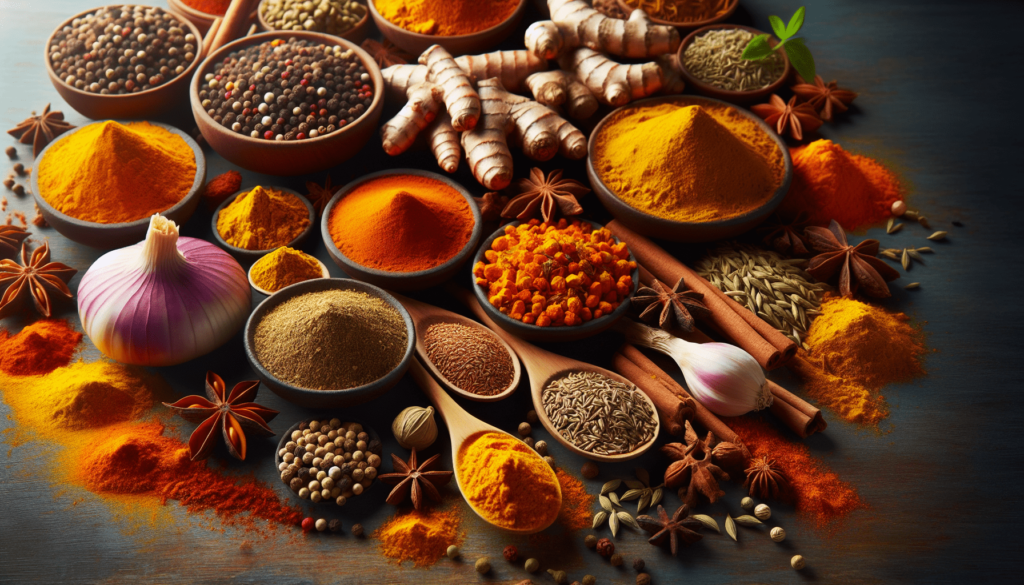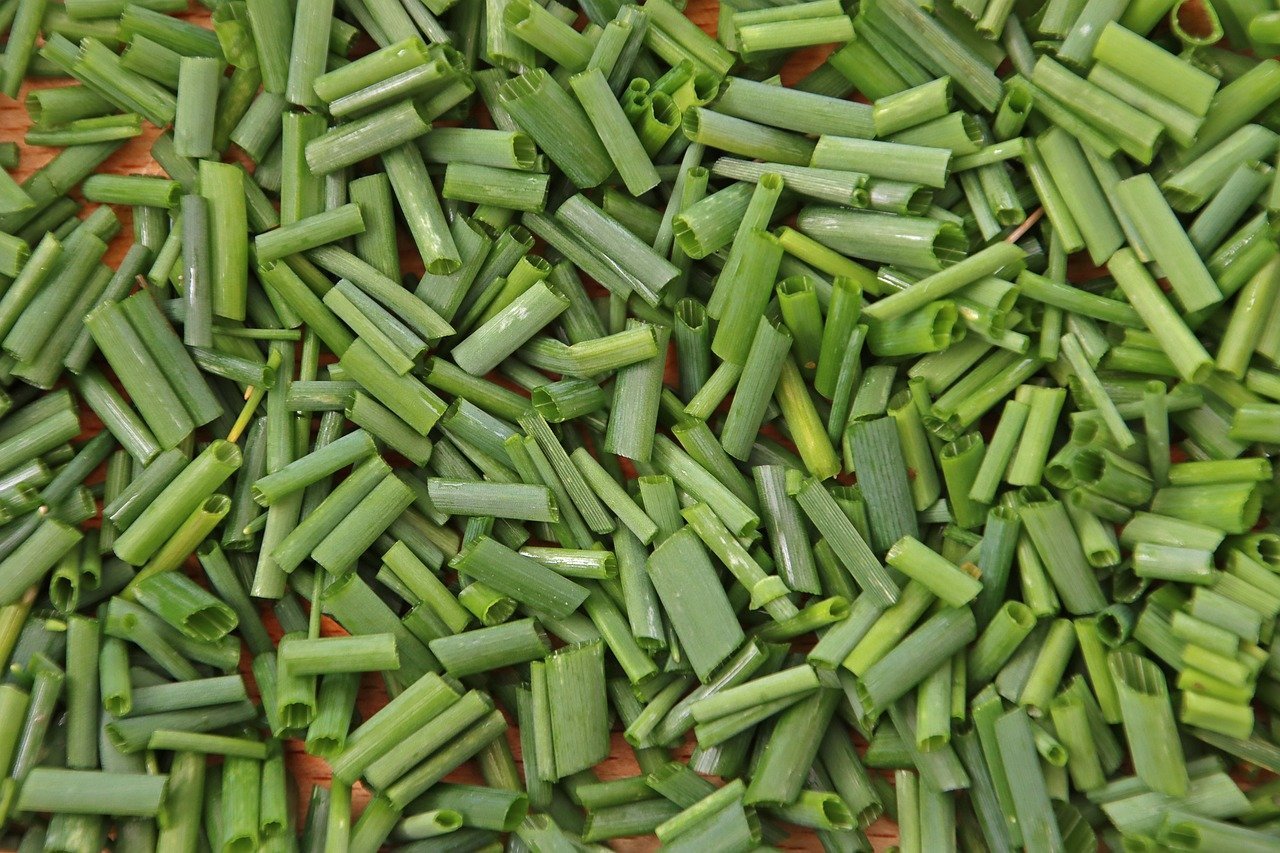Have you ever wondered how to maintain a healthy intestinal barrier? The answer might be right in your kitchen cabinet! Spices, with their aromatic flavors and vibrant colors, not only add zest to your dishes but also offer a range of health benefits. In this article, we will explore which spices can contribute to a healthy intestinal barrier and how they can help improve your digestive health. So, grab your apron and let’s dive into the world of flavorful spices!
1. Introduction to the Intestinal Barrier
The intestinal barrier is a critical component of our digestive system. It lines the walls of the intestines and serves as a protective barrier, separating our gut from the rest of our body. This barrier plays a crucial role in maintaining our overall health and well-being.
Structure of the Intestinal Barrier
The intestinal barrier is composed of several layers, each with its own specific functions. The innermost layer is the epithelial layer, which consists of tightly packed cells called enterocytes. These enterocytes form a barrier that regulates the passage of nutrients and other substances into the bloodstream.
Beneath the enterocytes lies the lamina propria, a layer of connective tissue that contains immune cells and blood vessels. This layer helps to support the epithelial layer and facilitates communication with the immune system.
Importance of Maintaining a Healthy Intestinal Barrier
A healthy intestinal barrier is essential for various aspects of our health. Firstly, it prevents the invasion of harmful bacteria, viruses, and toxins into our bloodstream. It acts as a physical barrier, preventing these harmful substances from entering our body and causing infections or inflammation.
Additionally, the intestinal barrier plays a crucial role in nutrient absorption. It allows the passage of nutrients from the intestines into the bloodstream, ensuring that our body receives the essential vitamins, minerals, and other nutrients it needs to function properly.
Furthermore, the intestinal barrier is closely linked to our immune system. It helps to regulate immune responses and prevent excessive inflammation in the gut. An impaired intestinal barrier can lead to an overactive immune response, contributing to various inflammatory conditions such as inflammatory bowel disease (IBD).
Maintaining a healthy intestinal barrier is therefore crucial for overall digestive health, immune function, and overall well-being.
2. Understanding Spices and Their Health Benefits
Spices have long been used in cooking not only for their flavor-enhancing properties but also for their numerous health benefits. These aromatic additions to our meals are not only delicious but also pack a punch when it comes to promoting our well-being.
Spices as Culinary Additions
Spices have been an integral part of culinary traditions for centuries. They not only enhance the taste and aroma of our food but also add depth and character to our meals. From savory dishes to sweet treats, spices have a way of transforming ordinary recipes into extraordinary culinary experiences.
Rich in Bioactive Compounds
One of the key reasons why spices are so beneficial for our health is their rich concentration of bioactive compounds. These are natural, plant-based compounds that have been found to have various health-promoting properties. Bioactive compounds in spices include polyphenols, flavonoids, antioxidants, and essential oils, among others.
Anti-inflammatory Properties of Spices
Many spices are known for their potent anti-inflammatory properties. Chronic inflammation in the gut can damage the intestinal barrier, leading to increased permeability and a host of digestive issues. Incorporating spices into our diet can help combat inflammation, thereby supporting the maintenance of a healthy intestinal barrier.
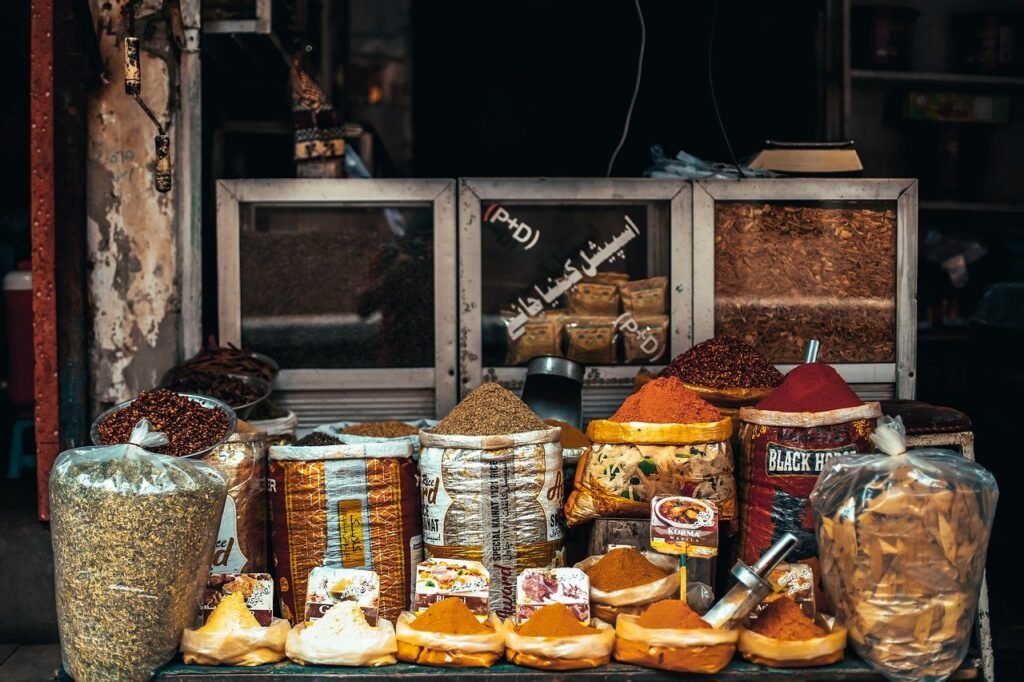
This image is property of pixabay.com.
3. Impact of Spices on Gut Microbiota
The gut microbiota, or the collection of microorganisms that reside in our intestines, plays a crucial role in maintaining gut health. The balance and diversity of these microorganisms are essential for proper digestion, immune function, and overall well-being. The use of spices in our diet can have a significant impact on the composition and diversity of our gut microbiota.
Effect of Spices on Gut Microbiome Composition
Studies have shown that spices can influence the composition of the gut microbiome. Certain spices, such as turmeric, ginger, and garlic, have been found to promote the growth of beneficial bacteria while inhibiting the growth of harmful bacteria. This favorable shift in the gut microbiome can contribute to a healthier intestinal environment.
Modulation of Gut Microbiota Diversity by Spices
Spices have also been found to enhance the diversity of the gut microbiota. A diverse gut microbiome is associated with better overall health, as it allows for a more robust immune response and better digestion. Including a variety of spices in our meals can help promote this diversity, ensuring a healthier gut environment.
4. Role of Spices in Enhancing Intestinal Barrier Function
Spices not only impact the gut microbiota but also play a direct role in improving the function of the intestinal barrier itself. By strengthening the intestinal barrier, spices can help protect against the invasion of harmful substances and maintain optimal gut health.
Reducing Intestinal Permeability
Chronic inflammation and certain dietary factors can impair the integrity of the intestinal barrier, leading to increased permeability, also known as leaky gut. Spices like turmeric, ginger, and cinnamon have been found to reduce intestinal permeability, helping to maintain a healthier gut barrier.
Strengthening Tight Junctions
Tight junctions are specialized structures between enterocytes that control the passage of substances through the intestinal wall. Disruption of these tight junctions can lead to increased permeability and a compromised gut barrier. Spices like turmeric, garlic, and oregano have been shown to strengthen tight junctions, enhancing the integrity of the intestinal barrier.
Promoting Mucus Production
Mucus serves as a protective barrier in the intestines, preventing direct contact between harmful substances and the intestinal lining. Some spices, such as ginger and garlic, have been found to promote mucus production, further enhancing the protective function of the intestinal barrier.
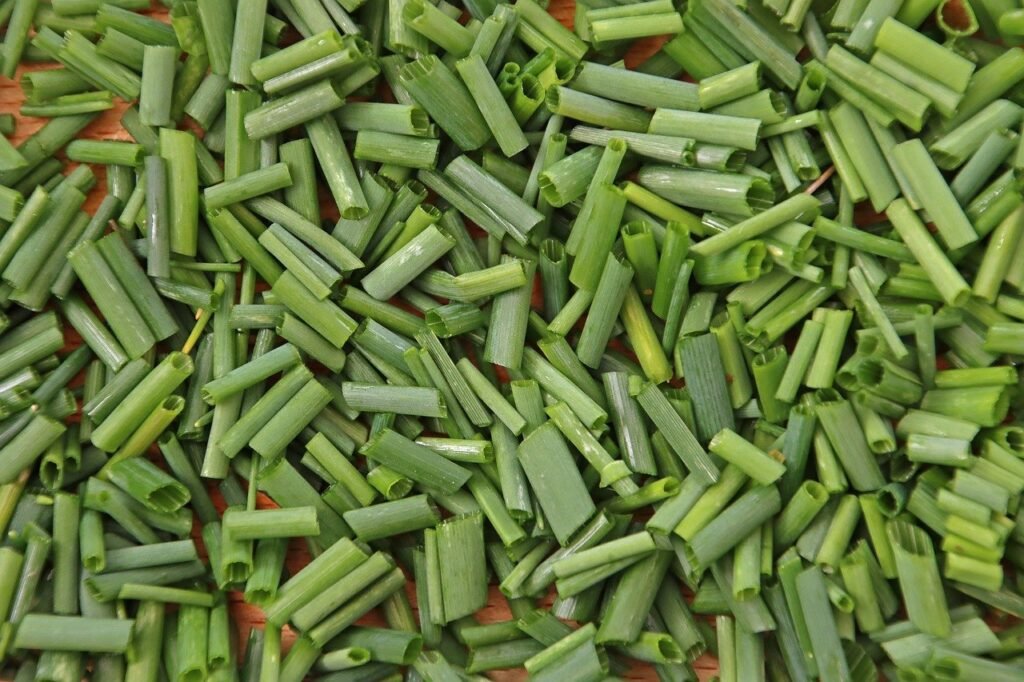
This image is property of pixabay.com.
5. Key Spices for a Healthy Intestinal Barrier
While many spices offer health benefits, certain spices are particularly effective in promoting a healthy intestinal barrier. Including these spices in our diet can help support gut health and ensure optimal intestinal barrier function.
Turmeric
Turmeric is a vibrant yellow spice widely used in Indian cuisine. It contains curcumin, the active compound responsible for its health-promoting properties. Curcumin has been extensively studied for its anti-inflammatory, antioxidant, and gut-protective effects.
Ginger
Ginger is a versatile spice known for its distinct flavor and aroma. Gingerol and zingerone, bioactive compounds found in ginger, have been found to have potent anti-inflammatory effects. Ginger also helps support gut health by promoting the integrity of the intestinal lining.
Cinnamon
Cinnamon is a popular spice with a warm and sweet flavor profile. It contains cinnamaldehyde and polyphenols, which contribute to its numerous health benefits. Cinnamon has been shown to have antibacterial properties, helping to maintain a healthy gut microbiome and support gut integrity.
Garlic
Garlic is not only a flavorful addition to dishes but also a powerful ally for gut health. Allicin and sulfur compounds found in garlic exhibit antimicrobial effects, protecting against harmful bacteria, viruses, and fungi. Garlic also supports the maintenance of gut barrier function.
Oregano
Oregano is an aromatic herb that contains carvacrol, a potent bioactive compound with antimicrobial and antifungal properties. By combating harmful microorganisms, oregano helps preserve the integrity of the intestinal barrier.
Thyme
Thyme is another herb abundant in bioactive compounds, including thymol. Thymol possesses antimicrobial properties that can help protect against harmful bacteria and fungi. Incorporating thyme into our meals can contribute to the preservation of intestinal integrity.
6. The Protective Effects of Turmeric
Among the key spices for a healthy intestinal barrier, turmeric stands out for its remarkable health benefits. The active compound in turmeric, curcumin, offers potent protective effects for the intestinal barrier.
Curcumin as the Active Compound
Curcumin is a polyphenol compound found in turmeric that has been the subject of extensive scientific research. It possesses powerful antioxidant, anti-inflammatory, and anticancer properties. These properties make curcumin a valuable ingredient for maintaining a healthy intestinal barrier.
Anti-inflammatory and Antioxidant Properties
Chronic inflammation in the gut can damage the epithelial layer, compromising the integrity of the intestinal barrier. Curcumin has been found to effectively combat inflammation, reducing the risk of gut barrier dysfunction. Additionally, curcumin’s potent antioxidant properties help neutralize harmful free radicals, further protecting the intestinal barrier from oxidative damage.
Support for Gut Barrier Health
Curcumin also supports overall gut health by enhancing the production of mucin, a component of the protective mucus layer in the intestines. By promoting mucin production, curcumin helps strengthen the intestinal barrier and prevent the infiltration of harmful substances.

This image is property of pixabay.com.
7. Ginger’s Contribution to Intestinal Barrier Health
Ginger, with its distinctive flavor and aroma, is not only a culinary delight but also a valuable ally for maintaining a healthy intestinal barrier. Gingerol and zingerone, bioactive compounds found in ginger, play a significant role in supporting gut health.
Gingerol and Zingerone
Gingerol and zingerone are key bioactive compounds found in ginger that contribute to its numerous health benefits. These compounds possess potent anti-inflammatory properties, helping to reduce inflammation in the gut and protect the intestinal barrier from damage.
Anti-inflammatory Effects
Inflammation can weaken the intestinal barrier and compromise its integrity. Ginger, with its anti-inflammatory properties, helps alleviate inflammation in the gut, supporting the maintenance of a healthy intestinal barrier. By reducing inflammation, ginger contributes to the prevention of gut barrier dysfunction.
Enhancement of Gut Lining Integrity
Ginger also supports the integrity of the gut lining by boosting the production of beneficial gut bacteria. This increase in beneficial bacteria helps to create a favorable gut environment, supporting the health and function of the intestinal barrier.
8. Cinnamon’s Impact on Gut Health
Cinnamon is a versatile spice known for its unique flavor and aroma. Beyond its culinary uses, cinnamon offers several benefits for gut health, making it a valuable spice for maintaining a healthy intestinal barrier.
Cinnamaldehyde and Polyphenols
Cinnamaldehyde is the main bioactive compound found in cinnamon and is responsible for its characteristic flavor and aroma. Cinnamon also contains polyphenols, which contribute to its health-promoting properties. These compounds have been shown to have antibacterial properties, helping to maintain a healthy gut microbiome and support the integrity of the gut lining.
Antibacterial Properties
The antibacterial properties of cinnamon can help keep harmful bacteria in check, preventing them from damaging the intestinal barrier. By promoting a healthy gut microbiome, cinnamon supports a balanced gut ecosystem and optimal gut barrier function.
Support for Gut Integrity
Cinnamon has also been found to help preserve the integrity of the gut lining. It aids in the repair and regeneration of the intestinal epithelial cells, ensuring a strong and healthy intestinal barrier. By enhancing gut lining integrity, cinnamon contributes to a healthier gut environment.
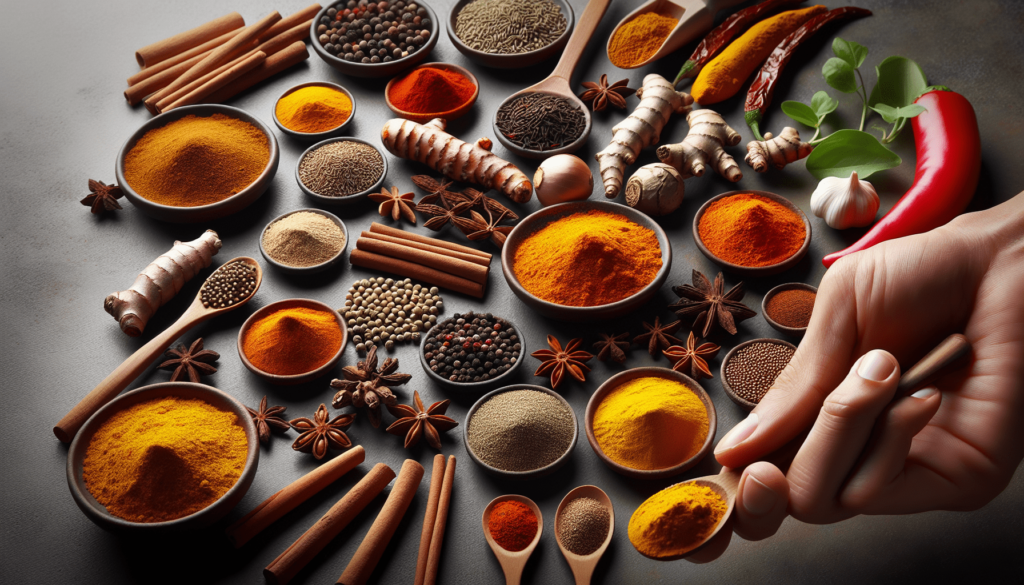
9. Garlic’s Influence on the Intestinal Barrier
Garlic, with its pungent aroma and distinctive flavor, has been revered for its numerous health benefits for centuries. When it comes to maintaining a healthy intestinal barrier, garlic is a powerful ally, thanks to its unique bioactive compounds.
Allicin and Sulfur Compounds
Allicin is the main bioactive compound in garlic responsible for its characteristic smell and potent antimicrobial properties. Garlic also contains sulfur compounds, which have been found to contribute to its health-promoting effects. These compounds play a crucial role in supporting gut health and maintaining the integrity of the intestinal barrier.
Antimicrobial Effects
One of garlic’s key advantages for intestinal barrier health is its ability to combat harmful microorganisms. The antimicrobial properties of allicin and sulfur compounds help protect against bacteria, viruses, and fungi that can compromise the integrity of the gut lining. By controlling the growth of these harmful microorganisms, garlic helps maintain a healthy intestinal barrier.
Maintenance of Gut Barrier Function
Garlic has also been found to support the preservation of gut barrier function. It helps prevent the breakdown of tight junctions, the specialized structures that regulate the passage of substances through the intestinal wall. By strengthening these tight junctions, garlic plays a crucial role in maintaining the integrity and function of the intestinal barrier.
10. Oregano and Thyme – Natural Defenders of the Intestines
Oregano and thyme, two aromatic herbs commonly used in Mediterranean cuisine, offer more than just tantalizing flavors. These natural defenders of the intestines contain bioactive compounds that contribute to the protection and preservation of the intestinal barrier.
Carvacrol and Thymol
Oregano and thyme owe their unique flavors and health benefits to their bioactive compounds, carvacrol, and thymol, respectively. These compounds exhibit potent antimicrobial and antifungal properties, making oregano and thyme effective defenders of gut health.
Antimicrobial and Antifungal Properties
Carvacrol and thymol have been found to effectively combat harmful bacteria and fungi that can compromise the integrity of the intestinal barrier. By inhibiting the growth of these microorganisms, oregano and thyme contribute to the maintenance of a healthier gut environment.
Preservation of Intestinal Integrity
The antimicrobial and antifungal properties of oregano and thyme help protect against the colonization of harmful microorganisms in the intestines. By doing so, they help preserve the integrity of the intestinal barrier, ensuring optimal gut function and overall well-being.
In conclusion, maintaining a healthy intestinal barrier is crucial for overall digestive health and well-being. Spices offer a natural and flavorful way to support the health of the intestinal barrier. Their anti-inflammatory properties, impact on gut microbiota, and direct effects on the intestinal barrier make spices like turmeric, ginger, cinnamon, garlic, oregano, and thyme valuable additions to our diet. By incorporating these key spices into our meals, we can enhance the integrity and function of our intestinal barrier, supporting optimal gut health and overall wellness.
